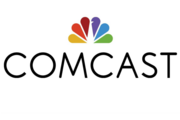
Only 3% of Colorado residents have access to a standalone internet plan that costs less than $60 a month. New research shows this digital divide disproportionately affects low income, Black, Hispanic and rural populations.
“This disparity exacerbates existing barriers to pursuing an education, earning higher incomes and obtaining essential services, such as health care and financial services,” according to the Boston Consulting Group. The firm’s recent report says local experts are key to closing the digital divide, which impacts 20% of Americans.
These local experts, also known as “digital navigators,” can help reduce digital and socioeconomic inequality in places like the Centennial State. That’s why Comcast, which supported the research, is investing in community-based digital navigator and broadband adoption programs across the country. Through this program, titled Project UP, Comcast has committed $1 billion to reach tens of millions of people.
What is a digital navigator?
Digital navigators are individuals affiliated with trusted community organizations who are trained to help people access the internet, use devices and build digital skills. According to the research, with the support of digital caseworkers:
- More than 65% of survey respondents said they obtained internet access or a computer or tablet at home. Among Hispanic and Black Americans, the rate increased to 72%.
- More than 85% of respondents said they used the internet more frequently.
- Almost 50% obtained better health care and 40% received support with basic needs like food, rent and housing
- One in three found a new job or earned a higher income.
The study followed the federal government’s bipartisan infrastructure bill and the Affordable Connectivity Program (ACP), which allocated $14 billion to provide monthly subsidies to eligible households for broadband service and connected devices.
According to Comcast, along with the federal government’s unprecedented investment in broadband infrastructure, the United States has a unique opportunity to reach those who remain without internet access or digital skills. Digital navigators can raise awareness and use of these low-cost internet programs and address other barriers to adoption. For instance, data from the Census Bureau and National Telecommunications and Information Administration shows nearly 60% of non-adopters point to lack of need or interest as the main reason for not subscribing to broadband.
“While the national funding for home internet subsidies has the potential to be transformative for millions of Americans, this research shows that overcoming the broadband adoption hurdle is necessary to truly maximize this federal investment,” Broderick Johnson, executive vice president, public policy and executive vice president, digital equity at Comcast, said when the study was revealed. “For over a decade, Comcast has been committed to digital equity. Through our Lift Zones and Internet Essentials programs, we have helped millions get online. In supporting digital navigator programs, we are broadening our work to close the digital divide by partnering with community-based advocates who are trusted messengers for how access to the internet has the power to change lives for more Americans.”
How technology is changing lives in Colorado
The Sister Carmen Community Center (SCCC) in Lafayette, Colorado, is one of the many community-based organizations whose clients are benefiting from the digital navigator program. The organization’s Bridging Digital Divides program is committed to reducing disparities and promoting equity for the most vulnerable members of the community.
The nonprofit provides access to equipment, teaches people basic digital skills and trains future digital literacy instructors. Its Basic Digital Skills series consists of eight weekly two-hour classes, in Spanish and English, that cover device set up, keyboard instruction, email basics, internet search, scams and phishing, typing and word processing. It also shows participants how to navigate local online resources, such as the Boulder Valley School District parent portal, which is used to check students’ grades and communicate with teachers.
Comcast supports SCCC by giving class participants access to its Internet Essentials program, which provides service for $9.95 a month. After enrolling in ACP, they get the service for free.
Comcast also gave the community center a grant to support two of the classes that will help 40 people gain digital skills. The money funds instructors’ salaries, free childcare for participants, pizza dinners and Chromebooks.
“In Boulder County, the socio-economic divide falls along cultural and ethnic lines and the vast majority of people in need of these skills are immigrants who often work in industries like childcare, cleaning, construction or restaurants where they don’t have exposure to keyboard devices,” said Lara Van Matre, digital divide program coordinator at Sister Carmen Community Center. “Through Internet Essentials and its financial support of our program, Comcast is giving our participants the opportunity to engage more effectively with their children’s schools and change the trajectory of their lives by opening up access to more career options.”
Learn more about Comcast’s $1 billion commitment to advance digital equity through Project UP.
